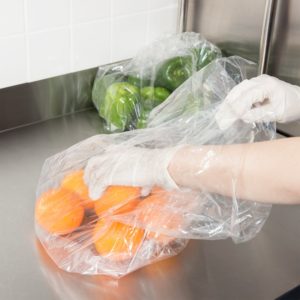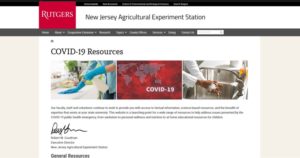The CDC, FDA and USDA have no reports at this time of human illnesses that suggest coronavirus can be transmitted by food or food packaging.
What should an operation do to protect their workers and themselves? Growers should inform employees concerning the importance of following recommended guidelines for their own health, the protection of co-workers and to keep the farm running. Anyone getting sick with COVID–19 will have a significant impact on continued operation of the farm!
Transportation
1. Do not pack too many workers in a vehicle. Ideally there should just be two individuals in a pickup. If using buses have one individual per seat.
2. If bringing workers in from another country or another part of the United States, consider quarantining them for up to 14 days. It is especially important if one in the group is showing symptoms.
Labor Housing
1. Social distancing inside labor housing with a common bunk room may be a challenge. Consider installing temporary/permanent screens/walls between bunks, separating bunks as far as space allows, or divide bunks into individual beds if practical/possible.
2. Plan for what would happen if someone contracted Covid-19. There should be a separate area set aside for that individual, whether it is a separate room or in another house. The original camp should be cleaned and sanitized following CDC guidelines before any workers return. [Read more…]




